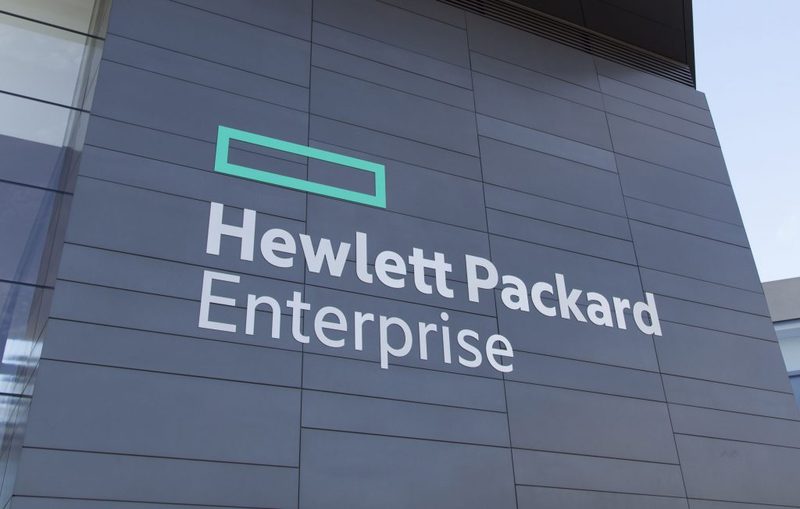 INFRA
INFRA
 INFRA
INFRA
 INFRA
INFRA
In a surprising move, Hewlett Packard Enterprise Co. is said to be close to negotiating a deal to buy the publicly listed networking company Juniper Networks Inc.
The deal, reportedly worth $13 billion, could be announced as early as this week, the Wall Street Journal reported, citing people familiar with the matter. The buyout is apparently intended to position the almost 100-year-old HPE better in the rapidly growing artificial intelligence industry.
Founded way back in 1939, HPE is one of the most iconic names in the U.S. technology industry, known for selling data center equipment such as servers and storage arrays. It also provides cloud services to customers ranging from small businesses to the world’s largest enterprise and governments. The company was also a significant player in the personal computer and printing markets, only to leave those businesses to HP Inc. when it split into two separate entities in 2015.
Juniper is a provider of communications network services and infrastructure, selling equipment such as routers and Ethernet switches to technology providers, telecommunications firms, financial services companies and other customers. It’s one of the main rivals to Cisco Systems Inc. and, like that company, also has a sizable business selling network management software for enterprises.
In recent months, Juniper has struggled with declining revenue amid tightening enterprise spending.
Both companies have a stake in the rising AI industry. HPE is attempting to become a key provider of computing hardware for companies looking to run AI workloads in their on-premises data centers and also in the cloud. For instance, it recently announced a new line of servers that integrate with Nvidia Corp’s graphics processing units, targeted at AI workloads.
In addition, HPE’s cloud AI strategy is focused around a new service called HPE GreenLake for Large Language Models, which provides an alternative to Nvidia Corp.’s graphics processing units for AI training. Through that service, customers will be able to use HPE’s Cray XD supercomputers, which are billed as an AI-native architecture for large-scale training of LLMs.
As for Juniper, it offers an AI service known as Mist AI, which is said to use machine learning algorithms to optimize customer’s experiences around wireless access. It also uses AI to enhance the capabilities of its network security software.
The deal may seem a bit odd, said Charles King of Pund-IT Inc. However, it’s likely that HPE is “interested in the company’s Mist AI business,” he explained. “If the deal goes through, the reported $13 billion price tag will make this HPE’s largest purchase since its acquisitions of Autonomy and EDS. For HPE’s sake, let’s hope Juniper Networks has a happier ending than either of those deals.”
Constellation Research Inc. analyst Holger Mueller said the deal could make sense for HPE, as it is desperately seeking new growth drivers. Acquiring Juniper could help to grow HPE’s Aruba Networks business, which Mueller said has performed well in recent years but remains too small to thrive.
“It looks like HPE intends to double down on networking in order to increase its total addressable market in the on-premises segment,” Mueller said. “Juniper comes with a growing cloud business and a substantial WAN business too, as well as its AI offerings. This is a good move for HPE and its investors, but it remains to be seen how the deal will stand up to regulatory scrutiny.”
If HPE and Juniper are able to hammer out a deal, it would become one of the biggest technology acquisitions in recent memory. In the last couple of years, there has been a notable slowdown in dealmaking in a tech industry that has been hit hard by the weak global economy and a perceived increase in antitrust scrutiny.
However, there are signs that acquisitions might be about to become more commonplace. Last week, it was reported that the chip design software company Synopsys Inc. is in talks to acquire the structural analysis software firm Ansys Inc., in a deal that could reportedly be worth $35 billion in stock and cash.
Juniper’s stock rose more than 23% in after-hours trading following the report. However, its shares are still trading at a fraction of what the company was once worth. As for HPE, shareholders seemed less enthusiastic about the deal, as its stock fell by more than 8% after-hours.
Support our mission to keep content open and free by engaging with theCUBE community. Join theCUBE’s Alumni Trust Network, where technology leaders connect, share intelligence and create opportunities.
Founded by tech visionaries John Furrier and Dave Vellante, SiliconANGLE Media has built a dynamic ecosystem of industry-leading digital media brands that reach 15+ million elite tech professionals. Our new proprietary theCUBE AI Video Cloud is breaking ground in audience interaction, leveraging theCUBEai.com neural network to help technology companies make data-driven decisions and stay at the forefront of industry conversations.